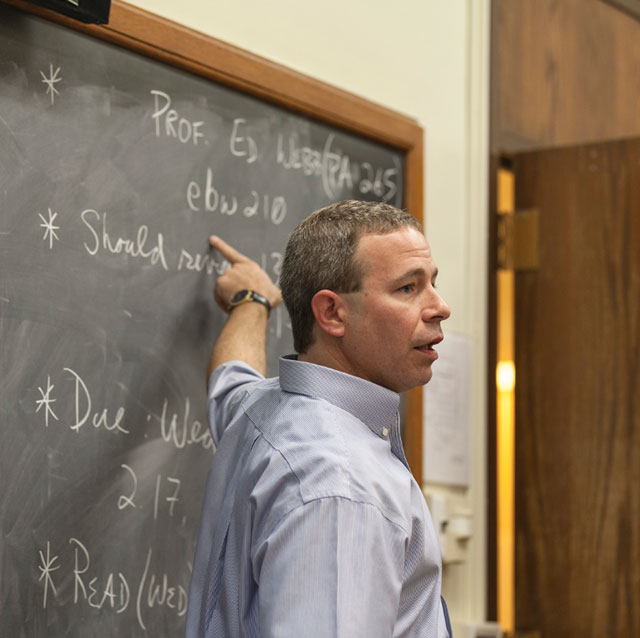The Mechanical Engineering program is accredited by the Engineering Accreditation Commission of ABET, https://www.abet.org, under the commission’s General Criteria and Program Criteria for Mechanical and Similarly Named Engineering Programs. This program is housed within the Department of Mechanical Engineering & Mechanics. Our enrollment and graduation figures can be found in this table.
 Overview
Overview
The mission of the department of Mechanical Engineering & Mechanics is to provide quality education and training to undergraduate and graduate students, to develop new knowledge and engineering methodology through research, and to provide service to industry and society at large.
Program Educational Objectives
In harmony with the mission stated above, the department has adopted three Program Educational Objectives (PEOs) for the undergraduate program in Mechanical Engineering. Program graduates are expected, three to five years from graduation, to:
- Successfully practice mechanical engineering and/or pursue advanced education, possibly towards other professions such as law, medicine, business, etc.
- Participate at varying degrees in research and development, and other creative efforts in science, engineering, technology and/or technological entrepreneurship.
- Engage in activities that demonstrate a commitment to professionalism and personal development and demonstrate leadership qualities.
Explanation:
"By successfully practice mechanical engineering" we mean:
- Advancement in careers in Mechanical, other Engineering, or careers such as health care, consulting, entrepreneurship, finance, management etc. assuming the utilization of basic engineering and science/mathematics principles and/or methodology taught in an ME program.
- Assuming increased levels of responsibility is a clear indicator of success.
- Effective communication with peers and working/leading diverse multi-disciplinary teams.
- Recognizing the global, societal and ethical contexts of their work.
Student Outcomes to Achieve Program Educational Objectives
In order to achieve these objectives the ME program ensures that its graduates are capable of the seven Student Outcomes (1-7) proposed by the accreditation organization ABET and adopted verbatim by the Lehigh University ME program. These Student Outcomes are:
- An ability to identify, formulate, and solve complex engineering problems by applying principles of engineering, science, and mathematics.
- An ability to apply engineering design to produce solutions that meet specified needs with consideration of public health, safety, and welfare, as well as global, cultural, social, environmental, and economic factors.
- An ability to communicate effectively with a range of audiences.
- An ability to recognize ethical and professional responsibilities in engineering situations and make informed judgments, which must consider the impact of engineering solutions in global, economic, environmental, and societal contexts.
- An ability to function effectively on a team whose members together provide leadership, create a collaborative and inclusive environment, establish goals, plan tasks, and meet objectives.
- An ability to develop and conduct appropriate experimentation, analyze and interpret data, and use engineering judgment to draw conclusions.
- An ability to acquire and apply new knowledge as needed, using appropriate learning strategies.
Achievement of the aforementioned educational objectives is served first through a sound education in mathematics, physics, and engineering sciences; second, by exposure to the engineering process (creation, innovation, analysis, and judgment) through design courses, projects, laboratories, and a choice of technical electives that permits a degree of specialization; and third, by the development of cultural awareness through courses in humanities and social sciences. Students may also take elective courses that transcend traditional disciplinary lines, while still satisfying the requirements for mechanical engineering.
The undergraduate program provides students with the basic education they will need to function in an engineering environment, pursue graduate studies, continue their professional development, and establish an awareness of the culture and society in which we live. Because of technological innovations and the long term demands of global competition, the department seeks to prepare our students to adapt to the rapid advances and changes in technology, and to serve as agents and leaders in effecting these changes, while being cognizant of the needs and concerns of the society at large.
The graduate program bridges between the generalized undergraduate studies and the more focused research and remarkable accomplishments of our faculty. New graduate students participate in research by working closely with their faculty advisors; however, they are quickly encouraged to work and think independently, assuming greater responsibility for critical research functions. This learning process prepares the students for future research and development positions in industry or academia, where they can contribute toward the improvement and advancement of the community and society at large.
